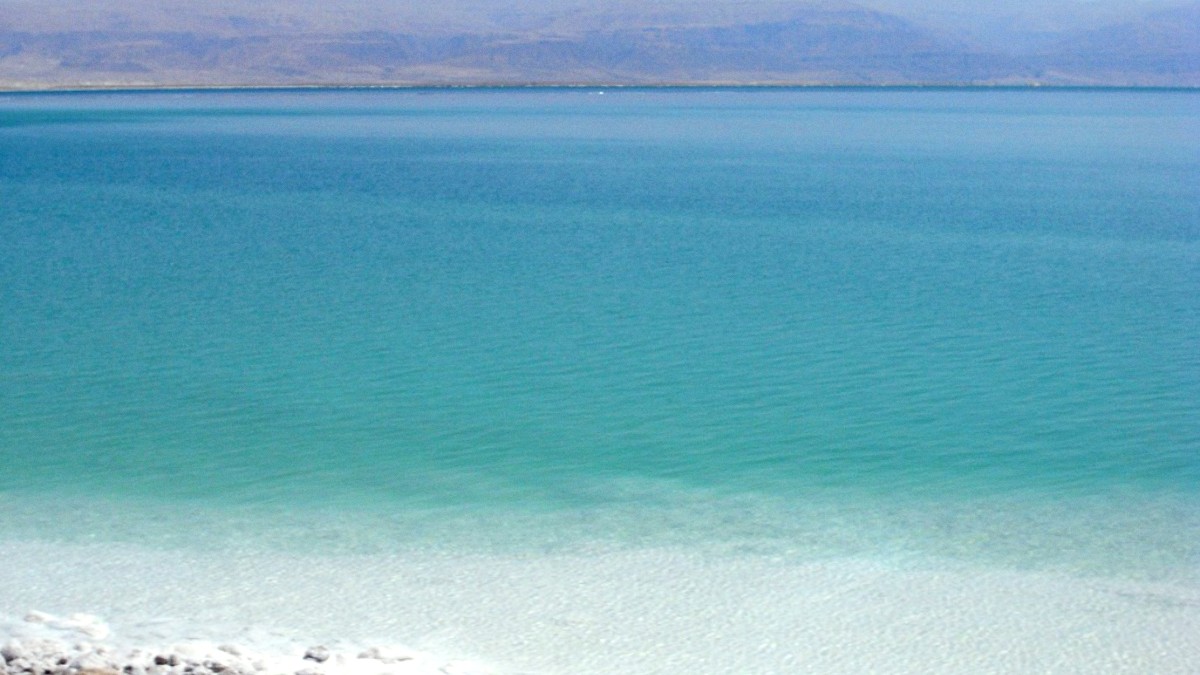
Israel And The Palestinian Territories
The Dead Sea region experiences distinct climate patterns throughout the year. Winter (December - February) weather is mild and pleasant, with temperatures between 15-25°C (59-77°F). Spring (March - May) offers ideal conditions for a visit, with temperatures from 20-35°C (68-95°F) and clear skies. Summer (June - August) becomes extremely hot and dry, often exceeding 40°C (104°F). Autumn (September - November) also offers ideal visiting conditions, with temperatures from 25-35°C (77-95°F) cooling gradually.
Always check local weather warnings before hiking, especially after rain, as flash floods are a risk in winter months in areas like Ein Gedi.
Most Western nationalities (e.g., US, Canada, EU, UK, Australia, NZ) receive a tourist visa upon arrival for stays up to 90 days. Other nationalities may obtain a visa in advance from an Israeli embassy or consulate. Access to Palestinian Authority areas like Jericho happens via Israeli checkpoints, with prior Israeli entry.
A passport valid for at least six months beyond your departure date from Israel is necessary. Immigration officers may ask for proof of onward travel or sufficient funds. Israel issues an entry card (blue slip) instead of passport stamps; keep this card for legal entry proof and if traveling to other Arab/Muslim countries. No general entry fee applies upon arrival.
Consumer visa application service.
Determine if a visa is needed based on your nationality.
Start your visa application process well in advance of your trip.
Visa and passport service website.
Access direct services for visa and passport needs.
Obtain the most current official requirements.
Compensation for flight disruptions.
Compensation for delayed or canceled flights.
Commission on claims within 45 days.
The official currency is the Israeli New Shekel (ILS or NIS), symbol ₪. Banknotes are 20, 50, 100, 200 ILS. Coins are 10 agorot, ½, 1, 2, 5, 10 ILS. ATMs are widely available. Credit cards are accepted in hotels, larger restaurants, and shops. Carry some cash for smaller purchases or rural areas. ATMs often offer better exchange rates than exchange offices. As of early 2024, approximately 1 USD equals 3.6 - 3.8 ILS.
In restaurants, a 10-15% tip is customary if service is not included. 12% is a common amount. Tipping taxi drivers is not typical, but rounding up the fare is an option. For tour guides, ₪20-₪50 per person per day is appropriate. Small tips (₪10-₪20) for hotel porters or housekeepers are welcome.
₪250 - ₪400 ($65 - $110 USD) per day.
₪500 - ₪900 ($130 - $240 USD) per day.
₪1,000+ ($270+ USD) per day.
Hostel dorm: ₪80-₪150; Mid-range hotel: ₪400-₪800.
Street food: ₪20-₪40; Casual restaurant: ₪60-₪120.
Your well-being matters during your trip. Learn about health guidelines and safety measures for a carefree visit.
The Dead Sea climate and unique environment require certain precautions for your health.
Modern medical facilities are available in major cities. Pharmacies are common and many pharmacists speak English. Emergency services are well-developed.
Travel insurance is highly recommended. Verify your policy covers medical emergencies, emergency evacuation, trip cancellation or interruption, and theft. Consider a policy that covers adventure activities if you plan extensive hiking.
Explore reputable providers to find coverage that suits your trip. Compare different policies to find the best fit for your needs.
Travel insurance for adventurous travelers. Visit World Nomads
Insurance for digital nomads and remote teams. Visit SafetyWing
Medical and travel coverage for visitors to the US. Visit Insubuy
Compensation for delayed or canceled flights. Visit AirHelp
Secure your belongings with anti-theft gear. These products offer peace of mind when exploring new places.
Keep your valuables safe with bags designed to resist theft attempts.
Access clean drinking water wherever you go, reducing reliance on single-use plastic bottles.
Protect yourself from intense UV radiation and insects in warmer climates.
Have these emergency contacts and procedures readily available during your travels for safety.
Dial 100 for police assistance.
Dial 101 for medical emergencies.
Dial 102 for fire emergencies.
Keep contact info for your country's embassy or consulate in Tel Aviv or Jerusalem.
Share your itinerary and emergency contacts with someone at home. This allows them to stay updated and offer support if needed.
Know how to contact your accommodation and tour operator in case of an emergency. Keep their numbers easily accessible.
These steps help ensure a safer and more prepared travel experience.
Israel is in an active seismic zone; minor tremors occur. Modern buildings have emergency protocols.
Risk exists in wadis and canyons during heavy winter rains. Adhere to park warnings and avoid affected areas.
Intense UV radiation. Use sun protection and seek shade during peak hours (10 AM - 4 PM).
While generally safe, understanding potential concerns helps maintain security.
Travel insurance for adventurous travelers. Visit Website
Health insurance for digital nomads and remote teams. Visit Website
Coverage for foreigners visiting the United States. Visit Website